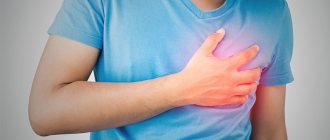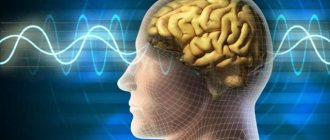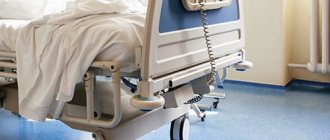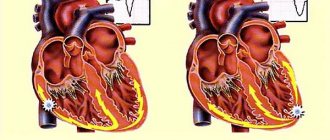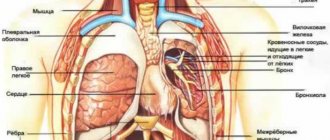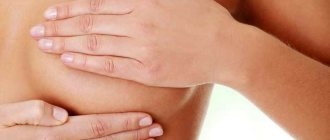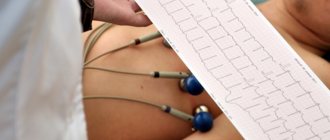Every day, thousands of people complain of pain syndromes in one organ or another. Pain indicates a dysfunction of the body, the presence of pathology. Unpleasant sensations in the heart area can be caused by a number of reasons and other factors. The appearance of symptoms is associated both with disorders of the cardiovascular system and with pathologies of neighboring organs. They put stress on the heart, thereby causing shooting pains in the heart.
Pain in the heart has different intensity, character, and frequency. Medical experts distinguish this type of heart pain:
- dull aching pain in the heart;
- sharp pain in the heart;
- cutting pain in the heart;
- acute pain in the heart.
The patient feels unpleasant sensations that interfere with normal life and do not allow normal functioning. Most often, pain syndromes in the heart area appear during physical activity. This problem is familiar to athletes and people who are associated with constant physical activity. Emotional stress and constant stress also affect the development of pathologies of the nervous and cardiovascular systems.
Causes of sharp pain in the heart area
The occurrence of severe pain is influenced by many factors. It is by paying attention to the symptoms that an accurate diagnosis can be made and effective treatment can be prescribed.
- Pain syndrome, which is localized in the chest, indicates pathologies of the cardiovascular system. There are several associated symptoms. Among them, increased heart rate is tachycardia.
- Hypertension and hypotension. With hypertension, a person feels dizzy, feels a sharp stabbing pain in the heart and head, and has migraines for a long time. Pain syndromes are nagging, aching. With hypotension, the patient becomes dizzy, has a feeling of general weakness, fainting, and loss of appetite. It is not life-threatening when taking medications that normalize blood pressure.
- Angina pectoris. Acute pain in the heart area may be a sign of angina. Associated symptoms are headache and tinnitus. Not dangerous to human life if treated correctly.
- Myocarditis and endocarditis.
- Myocardial infarction. When a person breaks into a cold sweat, becomes dizzy and experiences sharp pain in the heart, then we are talking about myocardial infarction. You should call an ambulance immediately.
- Cardiac aneurysm.
- Cardialgia. It causes intense nagging pain, panic and anxiety in the patient.
Non-cardiac causes also influence the patient’s poor health. They are responsible for the condition of other internal organs. Among them:
- Osteochondrosis. With osteochondrosis, a person feels severe pain not only in the spine. The severity also affects the cardiovascular system.
- Tuberculosis and pneumonia. If the respiratory tract is impaired, pain occurs when moving, breathing and laughing.
- Ulcer. Inflammation of the duodenum leads to acute pain in the stomach and heart.
- Gastrointestinal tract disorders. If there is a gastrointestinal tract disorder, the patient's condition may be accompanied by acute pain in the heart area.
- Mastopathy and other pathologies. In women, heart pain is often caused by breast problems. One of them is called mastopathy.
- Benign and malignant neoplasms.
- Musculoskeletal disorders. Inflammatory processes in the musculoskeletal system are caused not only by pain in the joints and muscles, but also by a pulling sensation in the heart area. Such diagnoses include fractures of ribs, joints, cracks, and pits.
- Nervous system disorders. The nervous system is closely connected with the heart, so frequent stress and emotional stress cause pain in the heart area.
- Hormonal imbalances.
- Vegetovascular dystonia. The main symptoms of vegetative-vascular dystonia are migraine and heart pain.
- Pancreatitis. With the inflammatory process of the pancreas, acute pain in the heart and stomach is observed.
- Toxic poisoning. In case of toxic poisoning with drugs or alcohol, the patient begins to experience tachycardia, increased blood pressure and severe pain in the heart.
- Cholecystitis. When the walls of the gallbladder are inflamed, pain in the heart is observed. The pain is dull.
It is noteworthy that heart pathology develops when the patient feels severe pain in the center of the organ. She is observed behind the sternum. Cardiovascular system disorders are characterized by other symptoms. The patient's condition worsens after stress and emotional stress.
If the pain is associated with other organs, then it intensifies when turning, walking and talking. Sharp pain syndromes appear in the case of angina pectoris, myocardial infarction and stroke. In such cases, you should urgently call an ambulance. With a cardiac aneurysm, the patient cannot tolerate severe attacks and suffers from dizziness and general weakness. The pain also spreads to neighboring organs. Continues for several hours. With pneumothorax, the discomfort increases with every second, especially when breathing. The stabbing pain intensifies with walking and movement.
When do you need a consultation with a cardiologist in Rostov-on-Don?
Teenagers tend to hide their ailments and keep silent about any concerns that may be a reason to see a doctor. Parents should pay attention to obvious symptoms and signs, after which they need to make an appointment with a cardiologist at the medical center:
- The heart rate changes, both upward and downward. Increased heart rate may be associated with emotional stress or hot weather, but in this case the pulse quickly recovers. If tachycardia occurs regularly, this may be a symptom of cardiovascular disease;
- The appearance of shortness of breath. Normally, intermittent breathing occurs during active movements, but in the case when shortness of breath manifests itself in a calm state, you should contact a cardiologist and have a cardiogram done for a fee;
- Pain in the heart area. Teenagers may complain of pain even in the absence of illness due to excessive emotional stress, but a complaint of pain in the heart is definitely a reason for consultation;
- Swelling and bluish discoloration of the skin are associated with impaired blood circulation, one of the causes of which is impaired heart function;
- Headaches, dizziness and tinnitus;
- Frequent nosebleeds;
- Bruising under the nails.
Diagnosis of cutting pain in the heart
How to diagnose cutting pain in the heart? Make an appointment with a cardiologist at the KDS Clinic. Tell your doctor about the nature, frequency and intensity of pain. Thus, the specialist will determine the exact diagnosis. You will be sent for testing. It is worth undergoing examinations such as ultrasound diagnostics of the heart, electrocardiogram. Once a diagnosis is made, each patient is assigned effective and affordable treatment. If the situation is critical, call an ambulance and take painkillers.
In more advanced cases, the patient remains in the hospital, where KDS Clinic staff monitor the patient’s condition, indicators, improvement or deterioration. Most often, medication treatment is prescribed at home.
Headache and dizziness - reasons and what to do about it?
06.03.2020
There is not a single person on planet Earth who has not at least once experienced headaches and dizziness . This usually happens due to simple fatigue, a change in atmospheric pressure, or other minor reasons. But it also happens that a headache is an indicator of serious, pathological processes occurring in the body. That is why if a person notices that dizziness and pain do not go away for a long time or appear regularly, you need to consult a doctor and undergo an examination.
Main symptoms and complaints
Headache and dizziness are often accompanied by additional symptoms:
- weakness and fatigue;
- feeling of anxiety and fear;
- vomiting and nausea ;
- disturbance of night sleep;
- blood pressure surges;
- confusion and lethargy.
Often vomiting and dizziness occur at the same time. Dizziness can occur with a sudden change in body position and excessive mental or physical stress; an increased urge to urinate , pain in the temples and general weakness are also possible.
Causes
Headache and dizziness can occur under different conditions. In some cases, this is a temporary phenomenon that simply brings discomfort, but sometimes it happens that symptoms appear in serious pathologies.
Non-hazardous factors that provoke headaches and dizziness:
- sudden change in body position. If a person quickly gets out of bed, then his body does not have time to react to these changes and the brain temporarily does not receive the required volume of blood ;
- Eye fatigue can also trigger headaches and dizziness ;
- stress. During severe emotional upheavals, cortisol and adrenaline are released the blood the blood vessels . Weak blood flow and high blood pressure prevent brain from being fully saturated with oxygen;
- lack of nutrients, vitamins and minerals also lead to dizziness and pain. Such symptoms are especially often observed with a lack of carbohydrates.
Dangerous causes of headaches and dizziness:
- head injuries lead to swelling that compresses the brain ;
- atherosclerosis . on the walls of blood vessels , which interfere with the blood flow , causing dizziness , fatigue and pain;
- brain neoplasms . Tumors can put pressure on brain tissue or squeeze blood vessels ;
- arterial hypertension. Pathological disorders of the autonomic system caused by high blood pressure;
- migraine. A widespread disease characterized by pathological vasoconstriction ;
- hypotension is manifested by low blood pressure and insufficient vascular .
You should not ignore headaches and dizziness A prompt contact with a specialist will help solve the problem or even save a life.
Published in Neurology Premium Clinic
What, besides the heart, can hurt “in the area of the heart”?
First, we need to understand the various causes of chest pain and additional symptoms of possible diseases.
1. Pathologies of the respiratory system
. Chest pain, including in the heart area, can be a consequence of lung diseases - pleurisy, pneumonia, pneumothorax. It is worth paying attention to the accompanying symptoms - cough, chest tightness, difficulty breathing, increased body temperature.
2. Gastrointestinal pathologies
. Oddly enough, pain in the stomach, spleen and pancreas can feel like pain in the heart. Pay attention to symptoms such as: bloating, digestive problems, belching, nausea, heaviness in the abdomen, hunger pains, pain in response to eating fatty foods.
3. Neuralgia
- damage to peripheral nerves - often disguised as heart disease. Often accompanied by changes in skin sensitivity, muscle trembling, redness and itching of the skin, pain during inspiration.
4. Neoplasms
. Benign and malignant tumors in the chest area can cause pain. Do not forget to do fluorography, ultrasound of the mammary glands or mammography (for women) once a year - this is the best prevention of neoplasms. Many of them can grow in the body for years without symptoms.
5. Pathologies of
the osteoarticular apparatus
. Osteochondrosis, arthrosis, arthritis are often accompanied by chest pain, and older people tend to think that they have heart problems, but at a doctor’s appointment, completely different reasons for poor health are revealed. Diseases of bones and joints may also be accompanied by restrictions in movement and pain in the joint area, inflammation, redness and peeling of the skin.
6. Consequences of injuries
. Sometimes injuries do not make themselves felt immediately. You might not have noticed how you got a bruise during training, and a day later it will manifest itself as pain in the chest. Pain can be caused by tissue ruptures and vascular damage, fractures, and sprains.
7. Hormonal changes in the body
. Thus, chest pain can appear in adolescents and women during menopause.
